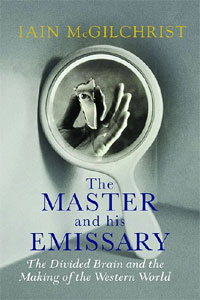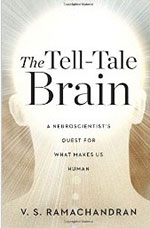Psychosis is a condition of the mind that results in difficulties determining what is real and what is not real. Symptoms may include delusions and hallucinations, among other features. Additional symptoms are incoherent speech and behavior that is inappropriate for a given situation. There may also be sleep problems, social withdrawal, lack of motivation, and difficulties carrying out daily activities. Psychosis can have serious adverse outcomes.
A delusion is a false fixed belief that is not amenable to change in light of conflicting evidence. As a pathology, it is distinct from a belief based on false or incomplete information, confabulation, dogma, illusion, hallucination, or some other misleading effects of perception, as individuals with those beliefs are able to change or readjust their beliefs upon reviewing the evidence. However:
Ideas of reference and delusions of reference describe the phenomenon of an individual experiencing innocuous events or mere coincidences and believing they have strong personal significance. It is "the notion that everything one perceives in the world relates to one's own destiny", usually in a negative and hostile manner.

Delusional disorder, traditionally synonymous with paranoia, is a mental illness in which a person has delusions, but with no accompanying prominent hallucinations, thought disorder, mood disorder, or significant flattening of affect. Delusions are a specific symptom of psychosis. Delusions can be bizarre or non-bizarre in content; non-bizarre delusions are fixed false beliefs that involve situations that could occur in real life, such as being harmed or poisoned. Apart from their delusion or delusions, people with delusional disorder may continue to socialize and function in a normal manner and their behavior does not necessarily generally seem odd. However, the preoccupation with delusional ideas can be disruptive to their overall lives.
Timothy John Crow is a British psychiatrist and researcher from Oxford. Much of his research is related to the causes of schizophrenia. He also has an interest in neurology and the evolutionary theory. He is the Honorary Director of the Prince of Wales International Centre for Research into Schizophrenia and Depression. He qualified at the Royal London Hospital in 1964 and obtained a PhD at the University of Aberdeen, Scotland, in 1970. He is a fellow of the Royal Colleges of Physicians and Psychiatrists and the Academy of Medical Sciences. Crow was for twenty years Head of the Division of Psychiatry of the Medical Research Council (MRC) Clinical Research Centre at Northwick Park Hospital and then a member of the External Scientific staff of the MRC in Oxford.
Bicameral mentality is a hypothesis introduced by Julian Jaynes who argued human ancestors as late as the ancient Greeks did not consider emotions and desires as stemming from their own minds but as the consequences of actions of gods external to themselves. The theory posits that the human mind once operated in a state in which cognitive functions were divided between one part of the brain which appears to be "speaking", and a second part which listens and obeys—a bicameral mind, and that the breakdown of this division gave rise to consciousness in humans. The term was coined by Jaynes who presented the idea in his 1976 book The Origin of Consciousness in the Breakdown of the Bicameral Mind, wherein he made the case that a bicameral mentality was the normal and ubiquitous state of the human mind as recently as 3,000 years ago, near the end of the Mediterranean bronze age.

A progress trap is the condition human societies experience when, in pursuing progress through human ingenuity, they inadvertently introduce problems that they do not have the resources or the political will to solve for fear of short-term losses in status, stability or quality of life. This prevents further progress and sometimes leads to societal collapse.

The lateralization of brain function is the tendency for some neural functions or cognitive processes to be specialized to one side of the brain or the other. The median longitudinal fissure separates the human brain into two distinct cerebral hemispheres, connected by the corpus callosum. Although the macrostructure of the two hemispheres appears to be almost identical, different composition of neuronal networks allows for specialized function that is different in each hemisphere.
Lawrence J. Whalley MB, BS, MD, DPM, FRCP(E), FRC Psych was formerly the Crombie Ross Professor of Mental Health in the University of Aberdeen, Scotland, UK from 1992 to 2008. He remains professor emeritus at the University of Aberdeen and from 2010-2020 part-time professor of research at the University of the Highlands and Islands.

Mark Solms is a South African psychoanalyst and neuropsychologist, who is known for his discovery of the brain mechanisms of dreaming and his use of psychoanalytic methods in contemporary neuroscience. He holds the Chair of Neuropsychology at the University of Cape Town and Groote Schuur Hospital and is the President of the South African Psychoanalytical Association. He is also Research Chair of the International Psychoanalytical Association.
Psychiatry is the medical specialty devoted to the diagnosis, prevention, and treatment of deleterious mental conditions. These include various matters related to mood, behaviour, cognition, and perceptions.

The Master and His Emissary: The Divided Brain and the Making of the Western World is a 2009 book written by psychiatrist Iain McGilchrist that deals with the specialist hemispheric functioning of the brain. The differing world views of the right and left brain have, according to the author, shaped Western culture since the time of the ancient Greek philosopher Plato, and the growing conflict between these views has implications for the way the modern world is changing. In part, McGilchrist's book, which is the product of twenty years of research, reviews the evidence of previous related research and theories, and based on this and cultural evidence, the author arrives at his own conclusions.
John Charles Cutting is a British psychiatrist specialising in schizophrenia research. He has written a number of books, and articles and reviews in professional journals, on the subjects of psychiatry, clinical psychology, schizophrenia and the functioning of the right cerebral hemisphere of the brain.
Norman Doidge,, is a psychiatrist, psychoanalyst, and author of The Brain that Changes Itself and The Brain's Way of Healing.

The Tell-Tale Brain: A Neuroscientist's Quest for What Makes Us Human is a 2010 nonfiction book by V. S. Ramachandran that explores the uniqueness of human nature from a neurological viewpoint.
Delusional intuition is an illusion in the context of the intuitive rather than an experience of false intuition. The person experiences something that resembles the intuitive, but instead, the experience is qualified as delirious. This illusion is also described as autochthonous.
Psychiatry is, and has historically been, viewed as controversial by those under its care, as well as sociologists and psychiatrists themselves. There are a variety of reasons cited for this controversy, including the subjectivity of diagnosis, the use of diagnosis and treatment for social and political control including detaining citizens and treating them without consent, the side effects of treatments such as electroconvulsive therapy, antipsychotics and historical procedures like the lobotomy and other forms of psychosurgery or insulin shock therapy, and the history of racism within the profession in the United States.

Paolo Fusar-Poli is an Italian and British medical doctor, psychiatrist, and Professor at the Institute of Psychiatry, Psychology and Neuroscience, King's College, London and at the Department of Brain and Behavioral Sciences, University of Pavia.
Michael David Kopelman is a British researcher of memory disorders, having contributed for more than 30 years to the development of cognitive neuropsychology and cognitive neuropsychiatry. Until his retirement in 2015, he was lead clinician at the Neuropsychiatry and Memory Disorders Clinic at St Thomas' National Health Service teaching hospital in Central London. Beginning in 1981, he also served as an expert witness in legal proceedings, including high-profile cases.

The Matter with Things: Our Brains, Our Delusions, and the Unmaking of the World is a 2021 book of neuroscience, epistemology and metaphysics written by psychiatrist, thinker and former literary scholar Iain McGilchrist.








